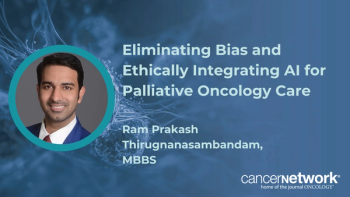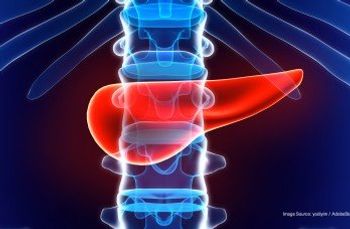
Early Relapse Appears Predictive of OS Outcomes in Mantle Cell Lymphoma
Early relapsed appears to be an important predictor of survival among patients with mantle cell lymphoma.
The occurrence of progression of disease (POD) at less than 24 months following first-line therapy appeared to be a significant prognostic factor for overall survival (OS) outcomes among patients with mantle cell lymphoma (MCL), according to results that were presented at the
In the full cohort, the OS for those who had progressive disease at less than 24 months was 3.86 years vs 10 years among those who had POD after 24 months (P <.0001). Additionally, when assessing survival by age, investigators reported that OS for patients younger than 65 years with POD after less than 24 months was 3.32 years vs 10 years for those with POD after 24 months (P = .00057). The OS among patients older than 65 years was 3.86 years for those who had POD at less than 24 months and 8.58 years for those with POD after 24 months (P = .0037).
Additionally, investigators identified factors that could impact the odds of POD at 24 months, such as age (P = .0076) and type of induction therapy (P = .017). In total, 75.6% of patients older than 65 years had POD at less than 24 months vs 43.7% among those who were 65 years and younger. Additionally, 33.3% of patients who received high-dose cytarabine-based (HiDAC) induction therapy had POD at less than 24 months vs 68.9% of patients who received a non-HiDAC regimen.
“Although younger patients receiving HiDAC induction were less likely to be POD [at less than] 24 months and had a significantly better outcome, a subgroup of them still relapses early or does not respond to induction. Despite the great advances made in the management of MCL in recent years, these higher-risk patients are still in need of more effective treatment strategies,” Alba Cabrita, MD, department of Hematology at the University Hospital Vall d’Hebron, and Experimental Hematology at Vall d’Hebron Institute of Oncology, said during the presentation.
A total of 125 patients were enrolled in this trial, 72.8% of whom were male and 52% were older than 65 years. A total of 92.8% of patients had stage III to IV disease, with 22.6% were Mantle Cell Lymphoma International Prognostic Index (MIPI) intermediate, and 53.6% were MIPI high-risk. Additionally, 64.5% of patients had a Ki67 score that was greater than 30 and 13.6% had blastoid or pleomofic morphology.
A total of 29.2% of patients received HiDAC induction therapy and 70.7% received non-HiDAC induction. Additionally, 59.3% of patients received salvage treatment. Investigators also reported that 61.6% of patients had early relapse at less than 24 months and 38.3% had late relapse after more than 24 months.
At the last follow-up, 40% patients were alive, 5.6% were lost to follow-up, and 54.4% had died, 69.1% of cases of which were related to MCL causes.
Patients who were 65 years or younger had a median OS of 10 years, and those older than 65 years had an OS of 4.89 years (P = .0021). The progression-free survival for those 65 years or younger was 4.11 years and those older than 65 years was 1.64 years (P = .00012). The duration of response for those 65 years or younger was 57 months, vs 15.5 months for those older than 65 years (P = .014).
A numbers of factors were identified that were thought to have an impact on OS, both in the univariable analysis—blastoid variant, Ki67 status, and POD at less than 24months—and the multivariate analysis—POD at less than 24 months (P = .05).
Reference
Cabirta A, Abrisqueta P, Sanches-Ruiz C, et al. Early relapse after first line has a significant impact on overall survival in patients with mantle cell lymphoma (MCL). Presented at the 63rd American Society of Hematology Annual Meeting. December 11-14, 2021; Atlanta, GA. Abstract 1357
Newsletter
Stay up to date on recent advances in the multidisciplinary approach to cancer.












































